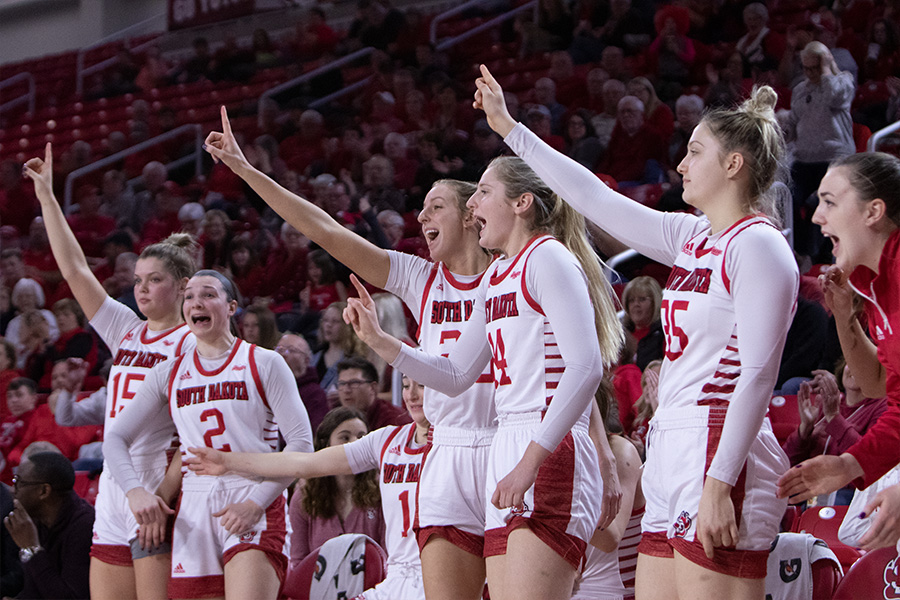Northern State Works To Help First-generation Students
ABERDEEN, S.D. (AP) — Until she started at public school in Mobridge, Jo’L Pretends Eagle never really considered going to college.
“College opportunities were right in front of me,” Pretends Eagle told the Aberdeen American News ( ). “I never thought I would have college opportunities.”
Pretends Eagle went to tribal schools until her grandmother, who raised her after her parents’ deaths, fell ill and died. She started at the Mobridge-Pollock School District halfway through her sophomore year after moving in with her aunt.
She said she visited Northern State University several times before making a decision about college. She moved into Jerde Hall in August.
“My first semester — and I tell this to anyone that comes and asks me about college — it’s tough,” Pretends Eagle said.
She had a bout of homesickness during her first semester, but Pretends Eagle said a dose of tough love from her aunt got her through it.
“She just said, ‘Suck it up,'” Pretends Eagle said. “It makes me think, ‘All right, I’m doing it.'”
NSU junior Christina Ruiz had a similar experience. From the Twin Cities suburb of Wayzata, Minnesota, she’s studying biology, with aspirations to become a nurse or a missionary.
Because of the five-hour drive, Ruiz said she doesn’t head home every weekend. When she first got to NSU, she was very homesick. But, she said, she got over that after getting involved with the Newman Center, the Catholic student center adjacent to campus.
“I’ve never had a weekend where I’m sitting in my room not doing anything,” Ruiz said. “There’s always something to do.”
Pretends Eagle and Ruiz are considered first-generation college students. First-generation students are usually defined as those whose parents or older siblings do not have at least a bachelor’s degree.
According to a 2012 study from the Georgetown University Education Center and the U.S. Department of Education National Center for Education, roughly a third of all college students nationwide are considered first-generation.
In fall, a little more than half of the freshmen at NSU were identified as being first-generation, according to statistics from the school. This is the first year the school has kept track of the statistic.
Because students without a parent or older sibling with first-hand experience to support them sometimes struggle or even drop out, TRIO was created. It started as three programs — Upward Bound, Talent Search and Student Support Services — in the mid- to late-1960s. There are now eight programs designated under the TRIO umbrella.
Not quite through her freshman year, Pretends Eagle has taken on leadership roles at NSU. She’s the treasurer of the Native American Student Association and president of the Jerde Hall Council. She also works at the information desk at the NSU Student Center and is part of the TRIO program.
“I’m not a stranger to trying new things,” Pretends Eagle said. “The majority of my friends are in each of these groups.”
TRIO is a federal program designed to assists low-income individuals, first-generation college students and people with disabilities.
“We have TRIO advisers that meet with the students for course planning. In addition to the regular NSU orientation, we have a small orientation as well,” said Rocky Burkett, NSU TRIO Student Support Services director. “We have four mentors that live in the dorm with the first-year students in Jerde (Hall). They’re available to students if they have questions about college or anything to help them feel more comfortable.”
At Northern, TRIO-eligible students can receive academic support through tutoring, Burkett said. There is also a community through social events organized by the office.
“College is really tough whether you’re first-generation or not,” Burkett said. “But I think if you’re first-generation, it’s a little bit more of an unknown. Your parents may not know the whole college process.”
The support starts about two years before students arrive on campus. Beginning in the junior year of high school, school counselors use tools available through the state to help students determine what their future might look like in terms of career and family, and what type of education they would need to achieve their goals, said Jolaine Bain, professional school counselor at Mobridge-Pollock.
“Sometimes they like them, sometimes they don’t,” Bain said. “It’s important to find out what you don’t like as well as what you do like.”
Because Sitting Bull College has a satellite campus in Mobridge, some students elect to live at home and take their generals or even complete a two-year or four-year program, Bain said.
“They’re able to take two or three classes and still work full-time,” Bain said of those who go to Sitting Bull College. “They do have four-year programs, and they have a technical school.”
Parents tend to be very supportive of students’ college dreams, Bain said.
“They want their children to succeed,” Bain said. “They want them to be able to do what their heart’s desire is and to train for that.”
Even though neither of Ruiz’s parents have bachelor’s degrees, they were very supportive of her decision to go to college.
“My parents really encouraged it,” Ruiz said. “They are the reason why I’m here. I could not do it without my family.”
Ruiz toured Minnesota State University, Mankato and Minnesota State University, Moorhead in addition to Northern, but said she found a fit at the out-of-state school in Aberdeen. She has a work study job and is a residence assistant.
Family members have made the trip to Aberdeen several times over the years, including for Thanksgiving when they cooked for the students from elsewhere and spent the holiday in town. They’ve also come out to help celebrate Hispanic Heritage Month, cooking traditional Mexican food and teaching about their heritage.
“They do miss me,” Ruiz said of her family. “My mom will call me every week, ‘When are you coming home?'”
___
Information from: Aberdeen American News,


